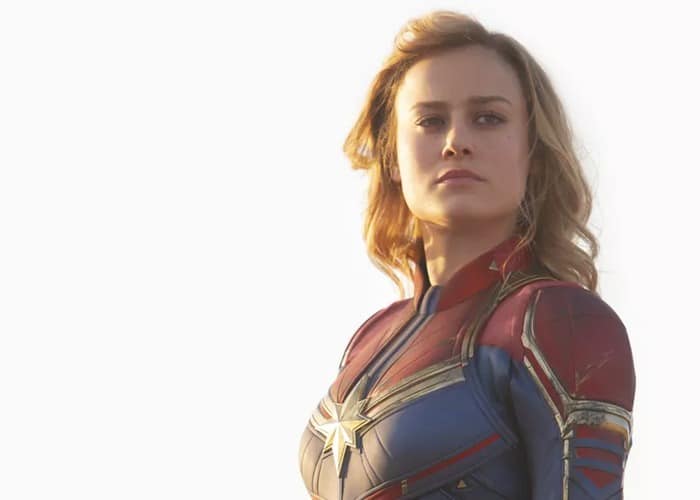
There’s been some unrest in the comic book world recently, particularly centering around some of the latest standalone films from the Marvel Cinematic Universe. The most obvious example stems from the Brie Larson led Captain Marvel, which sparked a wildfire of debate before it even reached theaters.
Unsurprisingly, the majority of the dissenters were focused on the fact that Captain Marvel is the first female-led film in the MCU. Somehow, many of them believed that by featuring a “strong woman” the film was a sign that Marvel was trying to be too political, and appeal to “Social Justice Warriors.”
Pointing the finger at Larson’s comments on increased diversity in the film industry, as well as the fact that the actress is a feminist, quickly became a common theme in backing up their grievances. An honestly amusing avenue for them to take, as Chris Evans is perhaps one of the most politically outspoken actors online, along with passionate environmental activist Mark Ruffalo. Those two never seem to get quite the same amount of flack, though…
Disgruntled Marvel fans even took to Rotten Tomatoes to “vote-brigade” Captain Marvel, submitting premature negative reviews to the site. They also bombarded IMDb with low scores and review ratings. The number of reviews soon became virtually impossible for the just-released film.
Carol Danvers’ trolls ended up being no match for her box office success, no surprise there — but the whole episode has brought up an interesting issue. I’m referring in particular to the argument that the film was “too political.” These claims — in this case, a poor cover for underlying sexism — ultimately fall flat and feel like nonsense, simply because the superhero genre as a whole originated out of politics.
The fact is that these iconic heroes and their stories, going back to the comic book origins themselves, have always been politically motivated. Moving outside the realm of Marvel and the MCU, you can find the most notable example of this in the conception of Superman. Arguably the first real mainstream superhero, Superman popularized comic books and effectively paved the way for many heroes to come.
Created by two Jewish writers, the Man of Steel himself was denounced by the Nazis in real life — most notably by the infamous Nazi propagandist Joseph Goebbels (who also made an appearance on a few covers) in 1940. In the face of the rise of Nazi Germany, Siegel and Shuster had constructed an indestructible, dark-haired man who was fond of going toe-to-toe with Nazis.
While the US remained out of World War II until 1941, Superman was more than ready to take on Hitler himself in an early story titled “How Superman Would Win the War.”
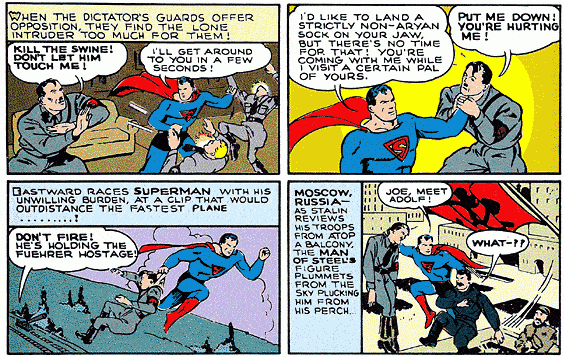
Sequart Organization
“I’d like to land a strictly non-Aryan sock on your jaw.”
Superman’s dissenters during the late 1930s and 1940s were primarily Nazis and Nazi sympathizers who believed him to be Jewish, therefore existing as a blatant opposition to their cause. They saw him as a political figure and took offense to his “never-ending battle for truth, justice, and the American way.” Though he has since been adapted to more modern storylines, Superman’s unique history remains firmly within the political.
Another hero with a very similar yet more consistent political origin is, of course, Captain America. Once again, before the US had even made up its mind on where to stand during WWII, Cap was already punching out Hitler across the pages of his very first issue.
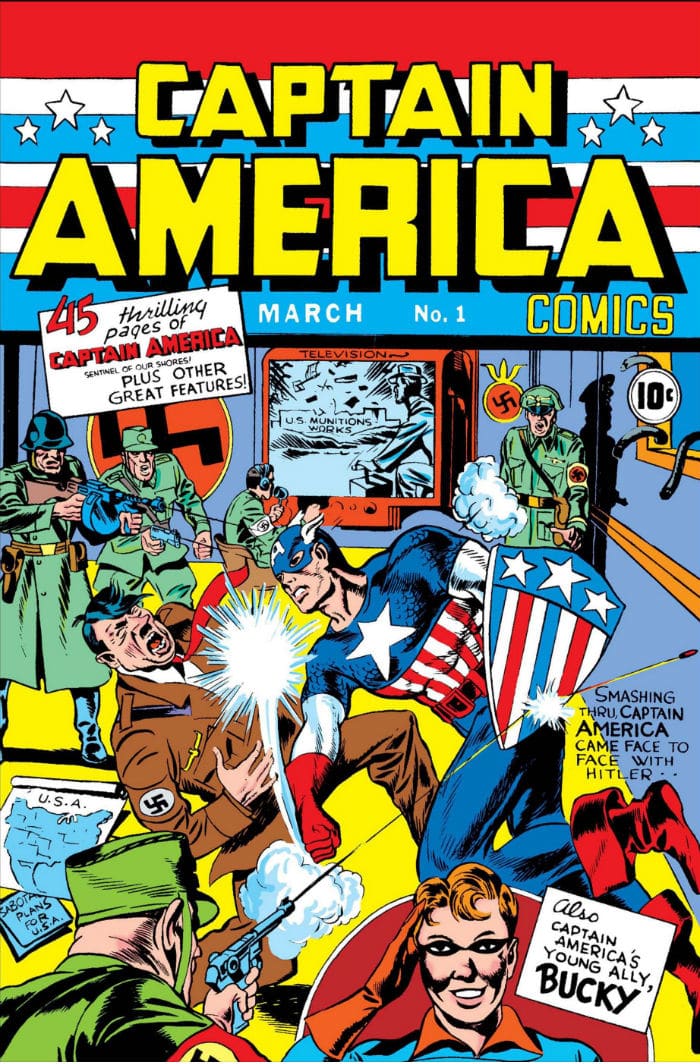
Marvel
“Some people really opposed what Cap stood for.”
Steve Rogers only became Captain America because he was so enraged by the Nazi regime’s rise to power and so decided to enlist despite poor health and an infirm body. His own motivations along with those of the creative team behind him (including creators Jack Kirby and Joe Simon, both Jewish men) were highly political — and today’s fans of the Captain America films love him for it.
We resonate with the scrappy boy squaring up with bullies three times his size, as well as the super soldier fighting world terror. This sentiment comes from a recognition of, and appreciation for, his cause and what he fights for. The connection between the sneering bully in the alleyway and the Fuhrer-like figure of Red Skull is made abundantly clear in Captain America: The First Avenger, and Cap has no patience for either.
In terms of current events, the situation in the US right now has certainly presented the superhero genre with a lot to work with, should they choose to. Moving past the half-baked claims towards Captain Marvel, there are undoubtedly political themes in the film relating to current events in America surrounding immigration and the marginalization of certain groups.
Throughout 2018’s Black Panther, which was privy to a good number of fanboy drama as well, there also exists some degree of political discourse. Moreover, some saw the very existence of a film with such a diverse cast as a “political move” on Marvel’s part (sound familiar?).
Yet where was the same outcry for films like 2008’s Iron Man, or for Captain America: The First Avenger? When you really take a hard look at Iron Man, in particular, there exists a treasure trove of political undertones. Tony Stark’s origin story in the MCU is very much a cautionary tale about the dark side of war and our country’s role in it, as well as the unfortunate reality of the nation’s military-industrial complex.
Marvel fanboys had no problem with Iron Man nor Captain America, though both films have an “agenda,” as one might put it. They are just as — if not more — political than both Captain Marvel and Black Panther. Such selective complaints, for the only films with a predominantly black cast and a female lead, only validate the necessity of these stories being told.
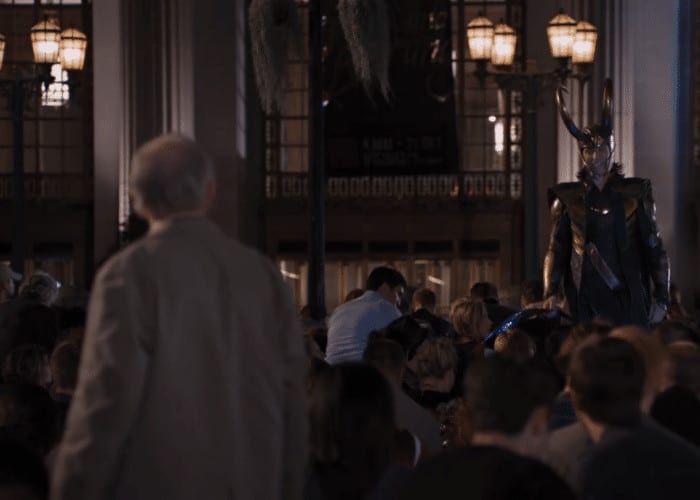
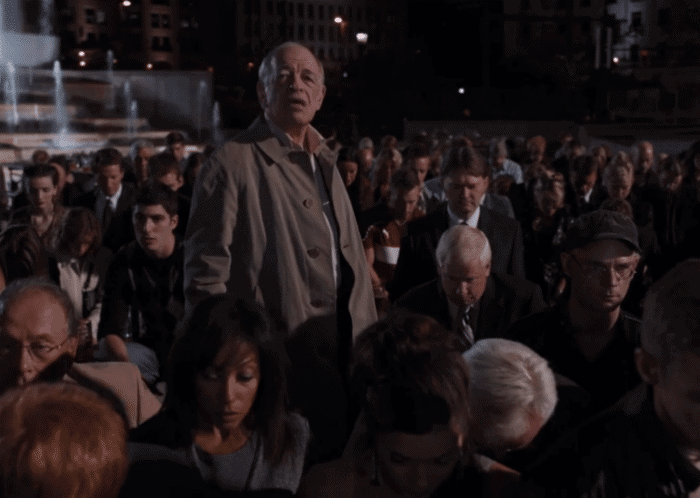
One of the most underrated scenes from ‘The Avengers’ is rife with significance, as an elderly German man stands up to Loki and refuses to kneel.
“There are always men like you.”
The very hero who popularized the genre was formed by Jewish Americans and fought Nazis, and one of the most popular heroes of the current MCU line-up has a comic book history full of punching Nazis directly in the face. No questions asked.
Not only is the superhero genre rooted in politics, but these stories being so politically motivated is deeply important. Audiences want and need such issues explored in popular media, especially today. While it’s true that comic book films are meant as entertainment by definition, they are also responsible for being a vehicle for critical socio-political issues which may not be seen in other media or discussed as openly by our government.
Their historical foundation has allowed for further representation and social themes to persist throughout the genre’s timeline, all the way up to the modern-day film adaptations. Even if these movies express this in much more subtle or underlying ways, their origins remain the same. The politics are still very much there, and the films we love to pack the theaters for today wouldn’t be what they are without them.
Related Topics: Brie Larson, Captain America, Captain Marvel, comic books, DC Comics, DC Extended Universe, Marvel, Marvel Cinematic Universe, Superman

